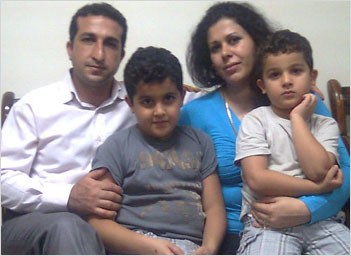By J. Lee Grady
EVERYWHERE I go I hear Christians bashing the church and complaining that they can’t attend a certain local fellowship. We’ve become experts at nitpicking. We are quick to judge and condemn. Church dropouts today have a long list of reasons why they can’t worship with other Christians:
“I don’t agree with all their doctrines”
“The pastor preaches too long”
“I don’t really like the worship style”
“The church closed during the pandemic” (or “The church never closed during the pandemic”)
“The pastor mentioned a political candidate I don’t support” (or “The pastor didn’t mention my political candidate”)
“A church member posted something online that offended me”
“A church member complained about something I posted online”
“No one spoke to me when I visited” (or “Too many people greeted me and made me feel uncomfortable.”)
There are actually 1,001 ways Christians can and will offend you at church. But your job is not to count the offenses; you must forgive every time. We are called to love each other “fervently” (1 Peter 1:22), and fervent love requires forgiveness. Yet we have become the generation of outrage; we are experts at being offended, and our loveless attitude squelches what God wants us to demonstrate.
The apostle John wrote: “The one who says that he is in the Light and yet hates his brother or sister is in the darkness until now. The one who loves his brother and sister remains in the Light, and there is nothing in him to cause stumbling” (1 John 2:9-10). In other words, you can’t say you love God if you hate His followers. If you hate the church, you are certainly not a lover of God.
Most Christians overlook the last chapter of Romans because it’s basically a long list of ancient names that are hard to pronounce. After Paul finishes his masterful teaching on grace and salvation, he sends warm greetings to his many friends in Romans 16.
He mentions Phoebe, Aquila, Epaenetus, Mary, Adronicas, Junia, Ampliatus, Urbanus and Prisca. He greets Stachys, Apelles, Herodion, Tryphena, Tryphosa, Persis and those “in the household of Aristobulus.” He says hello to Rufus, Asyncritus, Phlegon, Hermes, Patrobas, Hermas, Philologus, Julia, Nereus and Olympas. Paul seemed reluctant to leave anyone out of his list.
Paul refers to many of these people affectionately as “my beloved,” “my kinsman” or “a choice man.” They were not casual acquaintances. They were Paul’s close friends, and he carried them in his heart. He had been in prison with some of them. He missed them so much that he wept when he thought of them.
And after mentioning these 26 people—plus Rufus’ unnamed mother and Nereus’ unnamed sister—Paul sends greetings from his co-workers, Timothy, Lucius, Jason and Sosipater. And he reminds everyone to “greet one another with a holy kiss” (16:16). Paul’s love for people wasn’t just affectionate in a verbal sense. It was downright slobbery.
Paul began the book of Romans by telling his friends: “I long to see you…” (1:11a). Toward the end of the letter he says he looks forward to visiting them so that he can “find refreshing rest in your company” (15:32, NASB 1995). This miracle-working apostle reveals another side of himself; he’s gushy, mushy and huggable. He’s the quintessential people person.
This fervent love Paul showed his friends in Romans 16 is the essence of biblical Christianity. But this passionate love wasn’t limited to the Romans. He told the Philippians: “I long for you with all the affection of Christ Jesus,” (Phil. 1:8). He wrote to the Thessalonians: “Having so fond an affection for you, we were well-pleased to impart to you … our own lives,” (1 Thess. 2:8). He told Timothy: “I constantly remember you in my prayers night and day, longing to see you, even as I recall your tears,” (2 Tim. 1:3-4).
Our love for each other should be sincere, not faked, forced or formal. Our love should be fervent, not cool, professional, distant or clinical. It is supposed to be dripping with emotion, not dry and intellectual. Our passionate love for each other flows out of our love for Jesus.
If you want to be spiritually mature, you must love people no matter how they have hurt you. Canceling the church is not an option. Closing your heart and living in isolation is immature and selfish. If your love has grown cold, ask God to remove the offense—and invite His people back into your heart again.
J. Lee Grady is an author, award-winning journalist and ordained minister. He served as a news writer and magazine editor for many years before launching into full-time ministry.




















